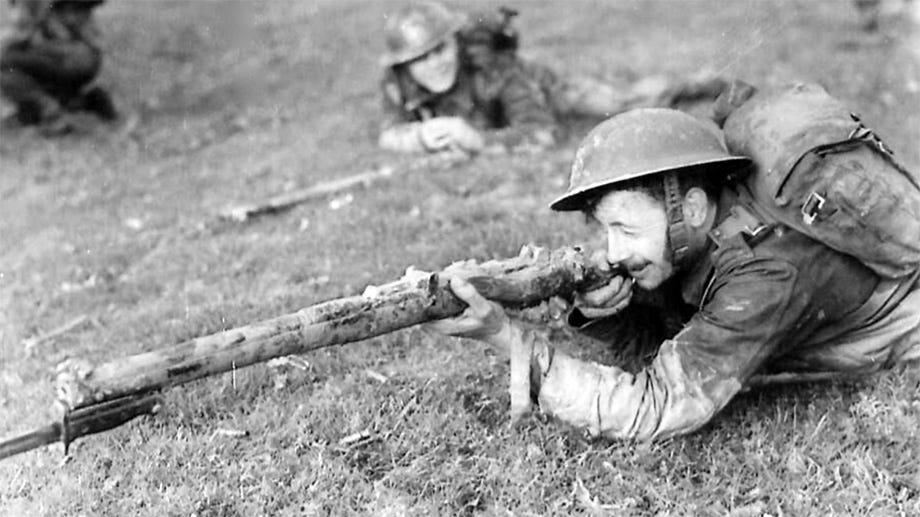Battle school in Britain
12th November 1942: All around the country the British Army is running Battle Schools - with rigorous training for offensive operations

In Britain, the threat of invasion seemed to have definitely passed. At the beginning of the year, it had seemed very possible that Soviet Russia might collapse under a new assault - and then Hitler could turn his attention to the west again. The training programme for the British Army was now firmly aimed at future offensive operations.


The journalist Alan Moorehead1 (who had been covering the Desert campaign) found himself back in England in November 1942, a brief stay before his next overseas trip. He occupied himself by visiting Army training establishments up and down the country. It seems he was genuinely impressed by what he saw, his account was not written for propaganda purposes:
Another day I joined a battle school. The idea of the battle school was General Alexander’s. After their normal training, as many N.C.O.‘s and officers as possible went off on three weeks’ special training which duplicates war as nearly as possible. On this wet moming the men made a landing before dawn. With smoke bombs and hand grenades falling around them, they rushed the beach.
Then they fought their way inland across streams and through hedgerows and farmyards. I can hardly say I enjoyed that day. Once I went down to my thighs in icy mud. Once I was covered with muck from a nearby grenade-burst. When the troops wanted to go through a ten-foot hawthorn hedge they did not hunt for gaps, they walked straight through the thorns.
All day until dusk they were at it without food, without rest. They ran and shot and climbed walls with their full equipment until they were tired into speechlessness. At the end of each stage they were called together, told what they had done wrong and then two new students were ordered to lead the next assault.
Normally there is something phoney, amateurish and childish about army field exercises, a sort of boy scoutery that sits oddly upon grown men. But not here. This was tough and uncomfortable and extraordinarily real.
They would simply be given a reference on the map, told roughly what resistance was there and ordered to take the place. Crawling on their bellies, they reconnoitred the farmhouses and the barns. Dropping into ditches and swanning over brick walls, they went in for the mopping-up.

Normally there is something phoney, amateurish and childish about army field exercises, a sort of boy scoutery that sits oddly upon grown men. But not here. This was tough and uncomfortable and extraordinarily real. It was a tremendous advance since the days of the crushing boredom of route marches and parade-ground drill.

The enthusiasm was the surprising thing. By some chemistry these youths had been taken from the suburban milk rounds and the city shops and made physically bigger and mentally much more alert. They clutched at any information.
I once casually said something about the dispersal of vehicles on convoy. A colonel at once shoved me into an aircraft and, piloting the thing himself, swept me back and forth over his battalion for half an hour to have my opinion on whether they were correctly spaced apart or not. Feeling giddy and far from expert, I shouted that it was first-class, but he continued tree-hopping for another ten minutes before he was satisfied.
Clearly these troops were fit for the conquest of Africa and the invasion of Europe.




